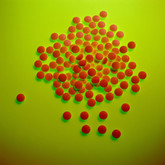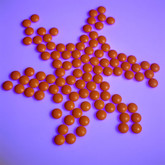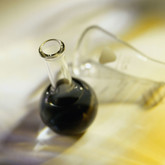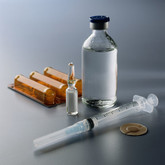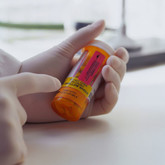Biosimilars
Overview of research on US regulatory issues surrounding biosimilars in 2012
Period: January to August 2012
The US is somewhat behind Europe in the biosimilars race, but has issued draft guidance and is expected to have a practical biosimilar approval pathway in place in the near future.
Competing biosimilars to Amgen’s biologicals
Amgen has been a leading biotechnology company since 1980. Amgen pioneered the development of novel products based on advances in recombinant DNA and molecular biology and launched the biotechnology industry’s first blockbuster medicines.
ABPI issues position paper on biosimilars
The Association of the British Pharmaceutical Industry (ABPI), which represents innovative research-based biopharmaceutical companies in the UK, announced on 12 November 2012 the publication of its position paper on biosimilars.
Biosimilars approved and marketed in Germany
Last updated: 23 November 2012
The Federal Institute for Drugs and Medical Devices (Bundesinstitut für Arzneimittel und Medizinprodukte, BfArM) is responsible for the approval, i.e. marketing authorization, of medicinal products, including biosimilars, in Germany.
Saving money in the European healthcare system with biosimilars
Biotechnology-derived medicines are increasingly popular for treating a range of conditions from cancer to autoimmunity, and yet they are among the most expensive healthcare products owing to their manufacture using live cell cultures. As healthcare providers become increasingly concerned about rising costs, interest is turning to the idea of substituting reference biological drugs with cheaper but similar biological products, or biosimilars, after patents expire on reference products. The use of biosimilars has the potential to reduce healthcare expenditure, particularly for long-term treatments, which incur high annual treatment costs.
Dialogue needed to build confidence in biosimilars
Concerns about the safety and efficacy of biosimilars have led many healthcare professionals to become reluctant to prescribe these products for their patients [1]. According to a commentary by Dr Hans C Ebbers and co-authors, these concerns could be addressed through more engagements taking place between regulatory authorities and the medical community over the drafting of regulatory guidelines [2]. This would result in greater confidence in the regulatory process and trust in the products that gain approval.
American dermatologists update position statement on biosimilar substitution
On 3 November 2012, the American Academy of Dermatology (AAD) updated its position statement on generics and biosimilar substitution to reflect its views, in particular on interchangeability* and naming of biosimilars.
Positive results from phase III study with biosimilar human insulin
One of Asia’s leading biotechnology companies, Biocon, announced on 31 October 2012 positive results from its global phase III study for its recombinant human insulin (Insugen). The study, which was carried out in type 1 diabetes mellitus (T1DM) patients, demonstrated comparable safety and efficacy compared to the originator product.
Sandoz starts phase III US trial for biosimilar epoetin alfa
Sandoz, the generic drug division of Swiss drug giant Novartis, announced on 25 October 2012 that it had started patient enrolment in a phase III clinical trial in the US for biosimilar epoetin alfa (Amgen/Johnson & Johnson’s Epogen/Procrit).
The latest biosimilars agreements
Biosimilar is still the hottest subject around. Just a few of the latest collaborations for the development of biosimilars include agreements made on 6 November 2012 between AET BioTech and BioXpress Therapeutics; Oncobiologics and Boston Oncology; ProCognia and UniTargetingResearch; and the Innovent Biologics and Pharmatech Associates agreement made on 1 November 2012.


